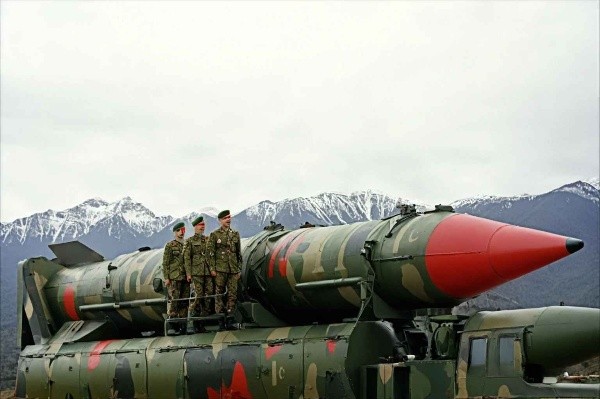Iran’s Plan to Strike Back Against the U.S.
Iran’s Military Preparations Following U.S. Attacks
Loading...

Pakistan’s missile programme continues despite six rounds of US sanctions in the past three years, experts say.
Overview of Recent Sanctions
The United States has recently imposed a new round of sanctions targeting a Pakistani company and several Chinese entities, claiming they are involved in supplying equipment and technology for Pakistan's ballistic missile development. This announcement marks the sixth round of sanctions since November 2021, aimed at curbing the proliferation of weapons of mass destruction (WMD), particularly long-range missiles. The sanctions allow for the freezing of US-based assets of the named entities and prohibit US citizens from engaging in business with them.
The sanctioned entities include Chinese firms such as Hubei Huachangda Intelligent Equipment Co, Universal Enterprise, and Xi’an Longde Technology Development Co, alongside Pakistan-based Innovative Equipment. The US State Department has accused these companies of knowingly transferring missile technology, with a specific focus on the collaboration between the Beijing Research Institute of Automation for Machine Building Industry (RIAMB) and Pakistan’s National Development Complex (NDC).
Pakistan's Response and Ongoing Development
Despite the sanctions, experts assert that Pakistan's missile program continues to advance. The most recent sanctions were preceded by similar measures in April 2024, which targeted four companies from Belarus and China for their involvement in supplying missile-related items to Pakistan. In response, Pakistan's foreign ministry criticized the sanctions as being imposed without evidence and accused the US of politically manipulating export controls.
Mumtaz Zahra Baloch, spokesperson for Pakistan's foreign office, emphasized that certain countries appear to be exempt from non-proliferation controls, hinting at the growing military cooperation between the US and India. This context underscores Pakistan's determination to maintain its missile development, which has been a cornerstone of its defense strategy for decades.
The Effectiveness of Sanctions
Experts like Tughral Yamin, a former military official and senior research fellow at the Institute of Policy Studies Islamabad, suggest that the sanctions may serve more as a pressure tactic against China rather than a genuine effort to impede Pakistan's missile capabilities. Yamin expressed skepticism about the effectiveness of these sanctions, stating that Pakistan's missile program has matured to a level where such measures are unlikely to hinder progress.
Pakistan has developed a robust missile arsenal, including nuclear warheads, and is not a member of the Missile Technology Control Regime (MTCR), which aims to limit missile proliferation. However, Yamin noted that Pakistan adheres to MTCR guidelines and has not pursued intercontinental ballistic missiles (ICBMs), focusing instead on deterrence against India, which joined the MTCR in 2015.
Historical Context and Future Implications
US concerns regarding Pakistan's missile program and its collaboration with China date back to the early 1990s. However, the intensity of these concerns has escalated since President Obama’s second term, with US officials urging Pakistan to restrain its missile range expansion. The Biden administration has adopted a more aggressive stance, imposing sanctions on entities believed to support Pakistan's missile program.
Muhammad Faisal, a foreign policy expert, highlights that the nuclear issue remains a significant irritant in US-Pakistan relations. Despite improvements in diplomatic ties, the periodic imposition of sanctions signals that the US will continue to balance its engagement with Pakistan through both incentives and punitive measures.
In conclusion, while US sanctions aim to curb Pakistan's missile development, the effectiveness of these measures remains questionable. Pakistan's commitment to its missile program, coupled with its strategic focus on deterrence, suggests that sanctions may have limited impact on its ongoing advancements in missile technology.
BMM - MBA
Iran’s Military Preparations Following U.S. Attacks
Troops remain in five strategic locations, raising fears of renewed tensions and long-term occupation.
Opposition forces have taken control of the capital after a significant offensive. Here is how it unravelled.
